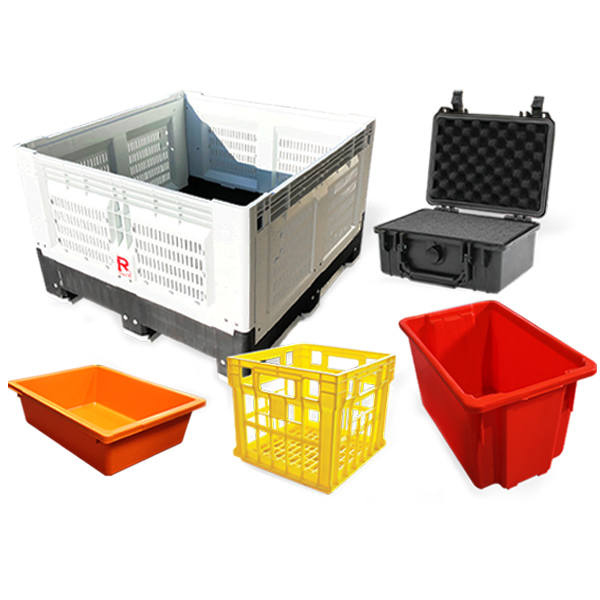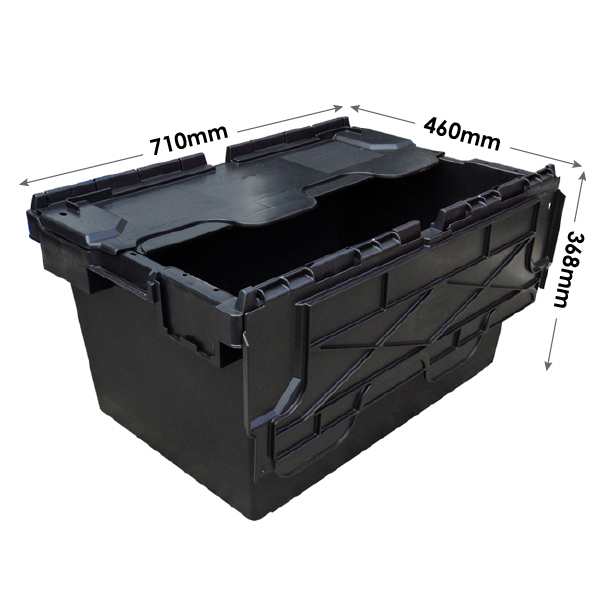Economical Storage: Explore Used Bulk Plastic Containers for Sale
Economical Storage: Explore Used Bulk Plastic Containers for Sale
Blog Article
Reduce Waste and Save Costs With Utilized Plastic Containers for Recycling
In today's company landscape, the emphasis on sustainability and cost-effectiveness has actually never ever been even more critical. One avenue that firms are significantly checking out is the use of used plastic containers for reusing. Beyond the evident environmental advantages, such campaigns can bring about substantial price savings and functional efficiencies. By embracing a strategic strategy to reusing plastic packaging, companies can not just add to a cleaner planet however likewise simplify their resource usage and bottom line (used plastic containers). The capacity of repurposing plastic containers goes far beyond simply waste reduction; it presents a compelling possibility for companies to straighten their functional experiment an extra lasting future.
Ecological Advantages of Reusing Containers
Recycling plastic containers substantially reduces waste and contributes to ecological sustainability by reducing the demand for new plastic production. By expanding the lifespan of plastic containers with reuse, fewer resources are needed for manufacturing, which consequently leads to lower energy intake and greenhouse gas exhausts connected with manufacturing procedures. In addition, recycling plastic containers aids divert them from garbage dumps or incineration, minimizing the ecological impact of plastic garbage disposal.
Reusing plastic containers promotes the principle of a circular economy, where materials are kept in usage for as long as feasible, minimizing the overall ecological impact of plastic product packaging. On the whole, the environmental benefits of reusing plastic containers are considerable and align with sustainable waste administration methods.

Cost Cost Savings Through Reusing Initiatives
Executing recycling campaigns for utilized plastic containers can result in considerable cost financial savings for companies and communities alike. By incorporating an organized recycling program, organizations can minimize costs related to acquiring new containers while additionally reducing waste disposal expenses. Recycling plastic containers with reusing efforts eliminates the need for constant replacements, bring about lasting savings on purchase costs. Additionally, recycling lowers the volume of waste sent to landfills, thus lowering land fill fees and possible fines for going beyond waste restrictions.
Cost savings expand beyond procurement and waste management, as recycling utilized plastic containers can likewise add to a positive brand picture. Consumers are progressively favoring eco-conscious businesses, and showcasing a commitment to sustainability through recycling efforts can boost a firm's online reputation and bring in ecologically mindful consumers. In addition, some regions use rewards or tax benefits for businesses that actively join reusing programs, supplying added cost-saving chances. Eventually, buying reusing initiatives for plastic containers not just benefits the setting yet also supplies concrete monetary advantages for communities and businesses.
Tips for Properly Cleaning Up Utilized Containers


Rinse and empty: Prior to reusing, empty the containers of any kind of continuing to be food or fluids. Wash them with water to get rid of residue and avoid smells.
Use Hot Water and Soap: why not find out more Wash containers with hot water and soap. This aids to eliminate grease, oils, and persistent food bits. Consider utilizing a container brush for hard-to-reach areas.
Avoid Extreme Chemicals: While it is very important to clean extensively, prevent using harsh chemicals that might infect the plastic. Stick to light dish soap to ensure the containers continue to be safe for recycling.
Air Dry: After cleaning, enable the containers to air completely dry completely before storing or recycling them. This assists protect against the growth of mold and bacteria.
Creative Ways to Repurpose Plastic Product Packaging
Repurposing plastic packaging uses innovative solutions for expanding the lifespan of materials and lowering read review waste. Rather of throwing out plastic product packaging after its initial use, organizations and individuals can check out different creative ways to offer these products a new purpose. One functional strategy is to use plastic containers as storage space solutions for organizing little items such as craft materials, equipment, or workplace devices - recycled plastic containers. By repurposing plastic product packaging in this fashion, not just are the containers shut out of garbage dumps, but they likewise serve a practical role in keeping a well organized space.
Another imaginative way to repurpose plastic product packaging is by changing it into planters for small herbs or interior plants. With a couple of drainage holes contributed to all-time low, plastic containers can be conveniently upcycled right into pots for greenery, including a touch of sustainability to home design. Additionally, plastic product packaging can be utilized in arts and crafts tasks, working as material for developing special sculptures, coordinators, or even jewelry. By thinking artistically regarding the potential uses of plastic packaging, people can add to reducing waste while participating in environmentally friendly and practical practices.
Neighborhood Influence of Recycling Programs
The technique of artistically repurposing plastic packaging not just cultivates sustainability on a private level however also plays a substantial function in forming the community effect of reusing programs. They contribute to a cleaner atmosphere and a much more sustainable future when communities welcome reusing efforts that consist of the reuse of plastic containers. By urging locals to take part in recycling programs that involve repurposing utilized plastic containers, areas can reduce the amount of waste sent out to land fills, conserve resources, and useful reference lessen their carbon footprint.
Moreover, the area impact of recycling programs prolongs past ecological advantages. It promotes a feeling of collective responsibility and a shared dedication to preserving the planet for future generations. Recycling initiatives that make use of used plastic containers can likewise produce chances for community engagement, cooperation, and education and learning. As individuals integrated to support reusing efforts, they not only add to a healthier atmosphere however additionally strengthen the social fabric of their neighborhood. Eventually, reusing programs that incorporate the repurposing of plastic packaging have the potential to motivate favorable modification and promote a much more lasting lifestyle.

Conclusion
In final thought, utilizing utilized plastic containers for reusing offers ecological benefits by minimizing waste and saving resources. Appropriately cleansing and repurposing plastic packaging can better extend the lifespan of these containers.
One opportunity that firms are progressively exploring is the use of made use of plastic containers for recycling.Reusing plastic containers significantly reduces waste and adds to environmental sustainability by reducing the need for brand-new plastic manufacturing. Furthermore, recycling plastic containers helps divert them from landfills or incineration, minimizing the environmental effect of plastic waste disposal.
Recycling plastic containers promotes the principle of a circular economy, where materials are kept in use for as lengthy as possible, lowering the total environmental impact of plastic packaging. By motivating citizens to get involved in recycling programs that include repurposing made use of plastic containers, communities can decrease the amount of waste sent out to garbage dumps, preserve sources, and minimize their carbon impact.
Report this page